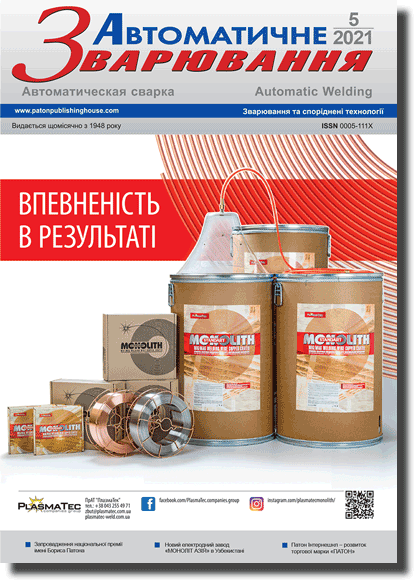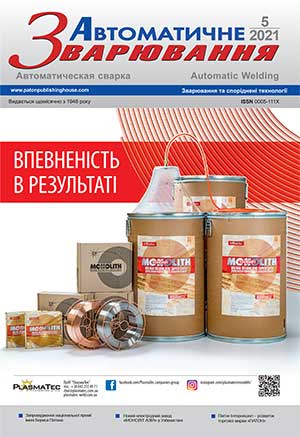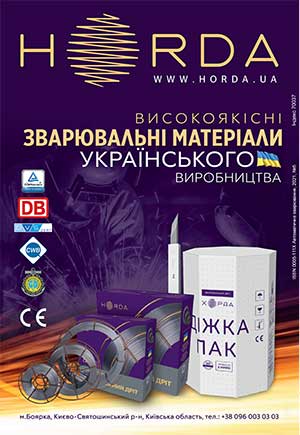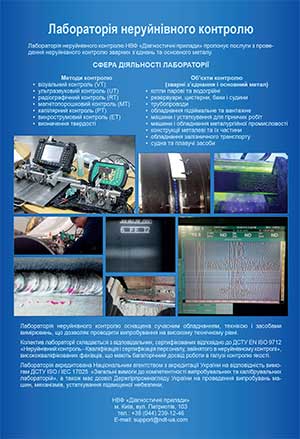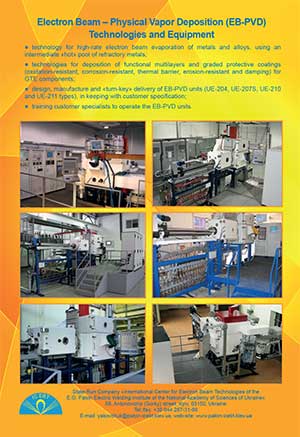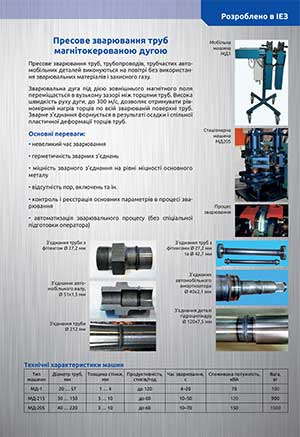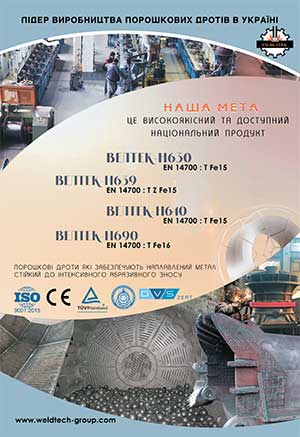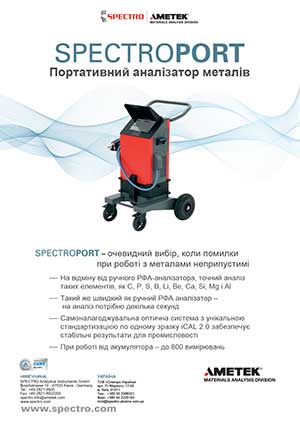| 2021 №05 (11) |
DOI of Article 10.37434/as2021.05.01 |
2021 №05 (02) |
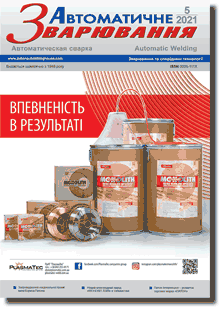
"Avtomatychne Zvaryuvannya" (Automatic Welding), #5, 2021, pp. 8-14
Operational control of the process of flash butt welding of railway rails by the method of pulsating flashing
S.I. Kuchuk-Yatsenko, P.M. Rudenko, O.V. Didkovsky, Ye.V. Antipin
E.O. Paton Electric Welding Institute of the NAS of Ukraine. 11 Kazymyr Malevych Str., 03150, Kyiv, Ukraine. E-mail: office@paton.kiev.ua
The article presents a study of the accuracy of reproduction of parameters of operational control of flash butt welding of railway rails in order to increase the reliability of evaluating the compliance of the process to the Technical Specifications (TS) and improve the quality of welded joints. For the statistical analysis of protocols of welding rails at rail-welding enterprises the review of existing indices of accuracy and stability of technological processes was made. For the analysis, the coefficient of variation Cv was chosen, which is not related to the tolerance of the deviation of the process parameter. Evaluations of Cv coefficients according to the welding protocols of more than 10 thous. joints and more than 100 specimens of a technological test for the stationary machine K1000 showed that the mode parameters set directly by the control system, are reproduced with an error of not more than 1.5%. The Cv coefficients increase sharply for the rate of flashing, transition from flashing to deposition and particularly deposition, which are included in the TS for welding rails and an active electric power, that occurred during flashing at the input of the welding transformer. The studies of Cv coefficients with grouping of welding data by six months showed that the variation of process parameters had no trends and the process was stable over time with a sufficient accuracy. The mean values and the standard deviation of the parameters of the process of welding rails and specimens of a technological sample differ within the statistical error, which indicates the possibility of approximating the results of test studies on the rail joints. Evaluation of effect of parameters of the process of rate, allowance and energy of flashing on the heat-affected-zone (HAZ) with the use of linear regression dependence showed an essential dependence of HAZ on variation of electric energy during flashing. For control of active energy, the measuring converter of average active electric power with a pulse output was developed, which is adapted to the control systems of K1000 and K922 machines with input signals of current to 1000 A and voltage to 440 V, a frequency band of these signals to 1 kHz and the resulted error of measurement to 1%. It is recommended to include active power energy released during melting at the input of the welding transformer in the list of control parameters to the TS, and to improve the quality of joints not only to control the parameters within tolerance, but to create the conditions of the smallest variation of parameters from obtained data. 7 Ref., 1 Tabl., 4 Fig.
Keywords: flash butt welding, railway rails, statistical control, coefficient of variation, process parameters, quality parameters, heat-affected-zone, active electric power during flashing, quality control
Received:05.04.2021
References
1. (2016) New welded rails for railways. Specifications: TUU 24.1-40075815-002:2016.2. DIN EN 14587-2: Railway applications – Track – Flash butt welding of rails. Pt 2: New R220, R260, R260Mn and R350HT grade rails by mobile welding machines at sites other than a fixed plant.
3. Portal of knowledges StatSoft. URL: http://statistica.ru/
4. Process capability index. URL: https: //en.wikipedia.org/wiki/ Process_ capability_ index
5. Kuchuk-Yatsenko, S.I., Milenin, A.S., Velikoivanenko, E.A. et al. (2018) Mathematical modeling of the process of metal heating in continuous flash-butt welding. The Paton Welding J., 10, 2-8. https://doi.org/10.15407/as2018.10.01
6. Kuchuk-Yatsenko, S.I., Rudenko, P.M., Gavrish, V.S. et al. (2020) Operational control as a method of quality evaluation of welded joints in resistance flash butt welding of modern highstrength steels. Nauka i Innovatsii, 16(2), 72-78 [in Ukrainian]. https://doi.org/10.15407/scin16.02.072
7. Rao S., Samant P., Kadampatta A., Shenoy R. (2013) An overview of Taguchi method: evolution, concept and interdisciplinary applications. Int. J. of Scientific & Engineering Research, 4, 10.
Advertising in this issue:
The cost of subscription/purchase order journals or individual articles
| Journal/Currency | Annual Set | 1 issue printed |
1 issue |
one article |
| TPWJ/USD | 384 $ | 32 $ | 26 $ | 13 $ |
| TPWJ/EUR | 348 € | 29 € | 24 € | 12 € |
| TPWJ/UAH | 7200 UAH | 600 UAH | 600 UAH | 280 UAH |
| AS/UAH | 1800 UAH | 300 UAH | 300 UAH | 150 UAH |
| AS/USD | 192 $ | 32 $ | 26 $ | 13 $ |
| AS/EUR | 180 € | 30 € | 25 € | 12 € |
| SEM/UAH | 1200 UAH | 300 UAH | 300 UAH | 150 UAH |
| SEM/USD | 128 $ | 32 $ | 26 $ | 13 $ |
| SEM/EUR | 120 € | 30 € | 25 € | 12 € |
| TDNK/UAH | 1200 UAH | 300 UAH | 300 UAH | 150 UAH |
| TDNK/USD | 128 $ | 32 $ | 26 $ | 13 $ |
| TDNK/EUR | 120 € | 30 € | 25 € | 15 € |
AS = «Automatic Welding» - 6 issues per year;
TPWJ = «PATON WELDING JOURNAL» - 12 issues per year;
SEM = «Electrometallurgy Today» - 4 issues per year;
TDNK = «Technical Diagnostics and Non-Destructive Testing» - 4 issues per year.




